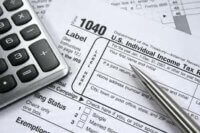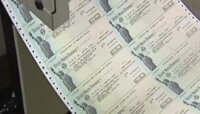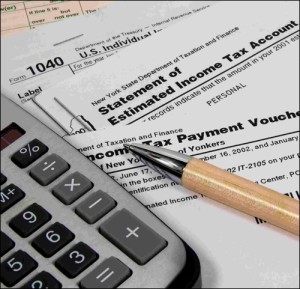Starts with a “t” and ends with “rubble”
Dear Bonnie: I’m being audited and I’m scared to death. I’m an outside sales rep and have to pay for my own car expenses. I took a big deduction for vehicle expenses. This auditor, who is twice my size and intimidating as hell, is asking me to provide my automobile mileage log which I have never kept. Does this mean I won’t get the deduction? Will I be facing jail time? – Troubled in Schellville
Dear Troubled: No worries, dude. Didn’t your dad ever show you how to take someone down at the knees? Then run. If you move out of town quick enough, they’ll never catch you. You, too, can be an expatriate. Okay, seriously now, there is no need to be afraid. The IRS often loves to bully and baffle taxpayers but, truth be known, most IRS personnel are wonderful people with, yes, you can believe me, compassion. Even those missing that chromosome want taxpayers out there working and making lots of money and paying lots and lots of taxes. So no, you’re not going to jail. If you don’t have substantiation for your deductions the worst that usually happens is you get a tax bill and a big whopping penalty, which may be avoided if you have reasonable cause.
Now I’ve been representing taxpayers in audits for more than 20 years and here’s the deal when it comes to that mileage log. The auditor asks for it and I say “Come on, you know nobody, absolutely nobody has one.” (Well I did have a client once who kept one but was he ever audited? No!) So the auditor will argue for a bit saying he can disallow the deduction because no contemporaneous records were kept. I can carry on about how it’s impossible to attach a clipboard to a steering wheel and finally the auditor will consent to a reconstruction. So if you have an appointment book (make sure you never throw away your appointment books – slam them into your tax file at year end), you can go through it and list out business destinations, adding in trips to the office supply store, etc.
Here’s the drill:
On January 1, log in your beginning mileage from your odometer into your appointment book.
Put a note on the page for December 31 to list your ending odometer reading.
Note: If you’re going through an audit and don’t have odometer readings, look for repair receipts near the beginning and end of the year. The odometer reading will be listed there and it’s possible to extrapolate the numbers.
By subtracting your beginning from your ending odometer reading you will have your total mileage figure for the year. The IRS asks for this number on your tax return.
Mark as many business destinations as you can throughout the year in your appointment book. At year end do a rough calculation to determine what your deductible business usage is.
If your business usage is greater than 50 percent you may qualify to deduct that percentage of your total actual expenses including: gas and oil, tires, repairs, maintenance (car washes, etc.), insurance, loan interest, vehicle registration, and depreciation. Or you may elect to take the standard mileage rate times the total business miles driven. Your tax pro can help you decide which method is best for your particular situation.
I understand that appointment books are becoming obsolete what with smart phones and other electronic devices. If you use an electronic calendar without a print capability, then you will want to log reminders to mark the odometer readings and store that information in your tax files. Quarterly, you should manually track business versus personal usage to establish and substantiate your percent of business usage.
It’s unfortunate that we have to spend so much time keeping these sorts of records, but you will be happy you did if the IRS knocks at your door.




You rock!